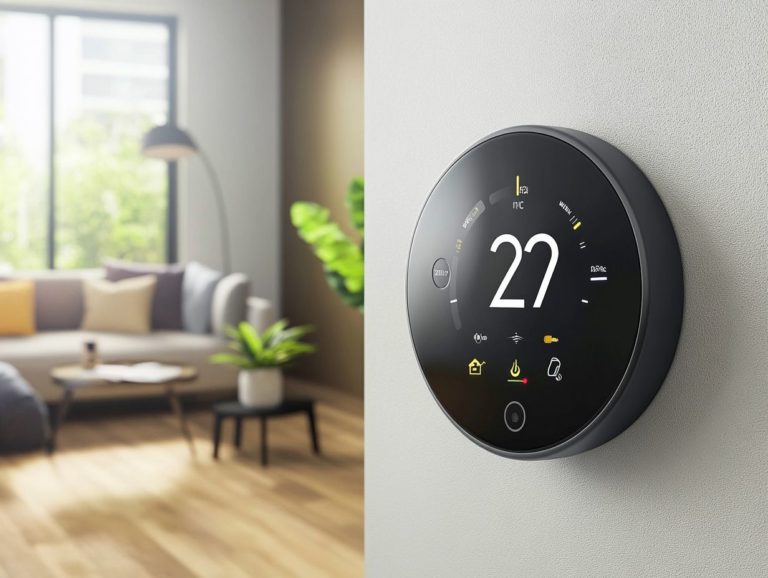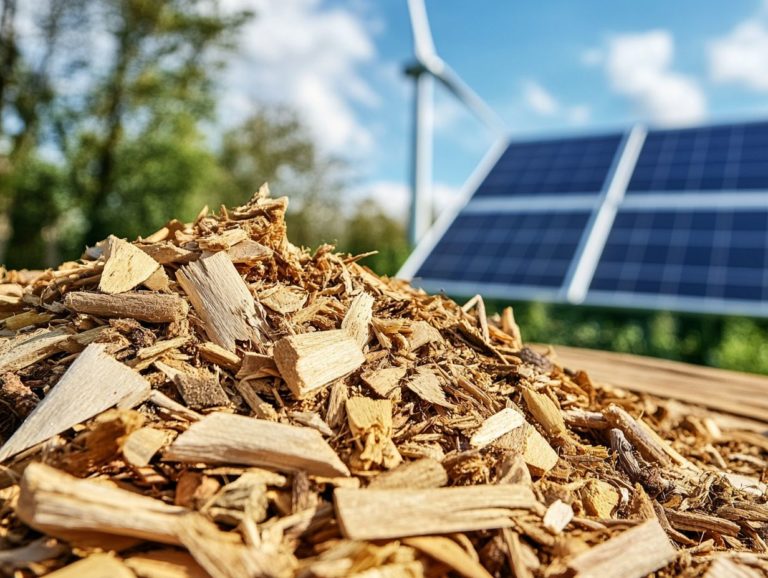How Do I Start with Solar Panels?
Curious about the transformative potential of solar panels? This article explains clearly everything you need to know, from the mechanics of solar panels to their remarkable environmental and financial benefits.
It offers a detailed roadmap for planning and installing your system, while also providing valuable insights on maintenance and performance monitoring. By the time you finish reading, you ll possess a thorough understanding of solar energy and how it can revolutionize your energy consumption.
Contents
Key Takeaways:
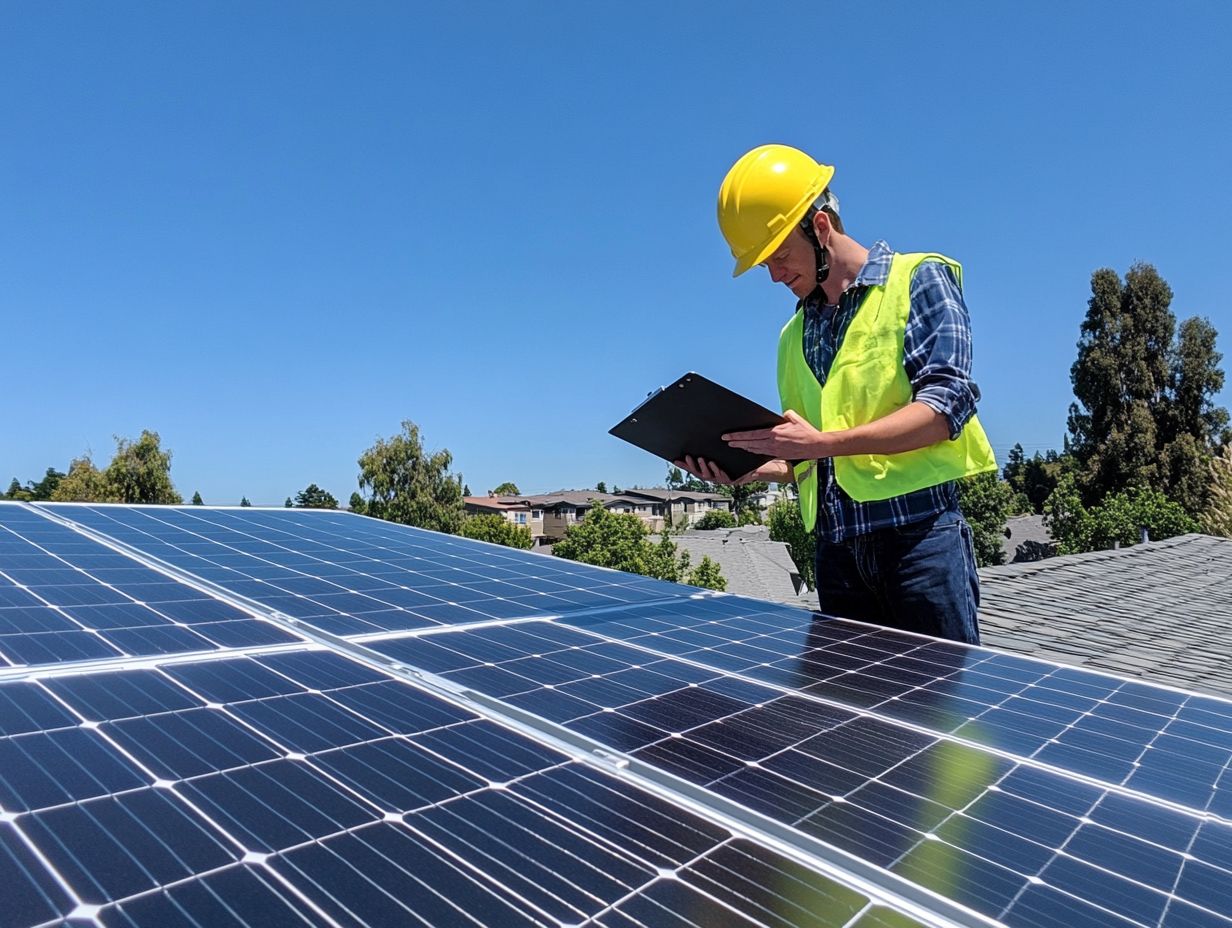
- Assess your energy needs and location to maximize efficiency and savings.
- Ensure proper maintenance and monitoring for lasting performance.
- Plan and prepare for professional installation to guarantee success.
What are Solar Panels and How Do They Work?
Solar panels are the heart of any solar energy system, expertly crafted to transform sunlight into electricity using photovoltaic cells, which convert sunlight into electricity. When sunlight strikes these cells, it generates an electric current that you can harness to power your home, business, or devices making them a crucial technology in the shift toward clean energy.
Understanding how solar panels function and their practical applications is essential for anyone looking to lower their electricity bills and tap into the benefits of solar technology. With home solar panels becoming increasingly accessible, the global adoption of this renewable energy source is gaining impressive momentum.
The mechanics of solar panels hinge on several key components, including the photovoltaic cells, inverters, and mounting systems each one playing a vital role in achieving optimal efficiency. Top brands like Qcells, JA Solar, and Silfab Solar have built their reputations by providing high-quality products tailored to a variety of energy needs and preferences.
If you’re thinking about investing in solar, don’t wait! It’s equally important to explore solar incentives that can significantly sway your choice of provider. These incentives, which can range from federal tax credits to state rebates, not only make the initial investment easier on your wallet but also enhance your long-term savings.
Benefits of Using Solar Panels
Opting for solar panels presents a wealth of benefits, both for the environment and your wallet, making them an appealing choice for homeowners looking to invest in a sustainable future.
By harnessing solar energy, you can dramatically reduce your dependence on fossil fuels, contributing to lower greenhouse gas emissions and championing clean energy.
The energy savings from lower electricity bills can be significant, especially when combined with enticing solar incentives like the solar tax credit and net metering programs. Grasping these advantages is essential for anyone contemplating a residential solar energy system.
Environmental and Financial Advantages
The environmental and financial benefits of using solar panels are truly remarkable, as they lead to cleaner air and significantly lower your monthly utility costs. By harnessing the clean energy generated from solar panels, you not only reduce your carbon footprint but also play a vital role in the fight against climate change.
With financial advantages such as energy savings and a variety of solar financing options think solar leases and power purchase agreements the shift to solar energy becomes increasingly attainable for many households.
Studies have shown that when solar panels are widely adopted, greenhouse gas emissions can be notably reduced, which may lead to a decreased reliance on fossil fuels over time. You ll not only relish the luxury of lower energy bills but also shield yourself from the unpredictable swings in energy prices, securing stable savings for years to come.
Moreover, government incentives, such as those provided by the Inflation Reduction Act, offer enticing rebates and tax credits that make solar energy even more appealing. These financial incentives can significantly lower the initial investment needed for solar installations, positioning it as an attractive option for anyone eager to invest in both their future and the well-being of our planet.
Ready to start your solar journey? Explore local options today!
Factors to Consider Before Installing Solar Panels
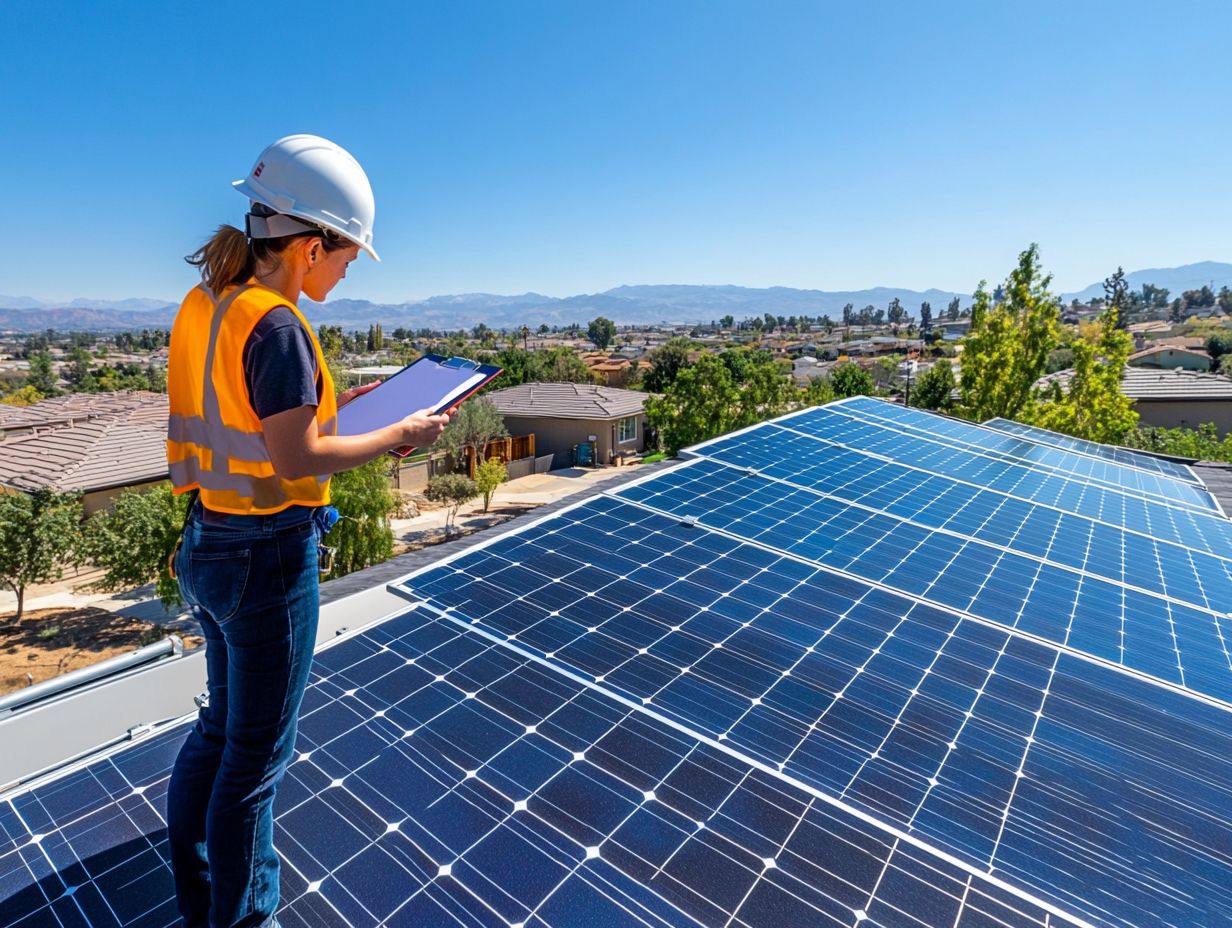
Before you install solar panels, it’s essential to consider several factors that can greatly influence your investment and satisfaction with solar energy. The journey begins with assessing your energy consumption and determining your specific solar energy needs. This will guide you in selecting the right size and type of solar system.
Moreover, familiarizing yourself with solar panel prices, warranty options, and the long-term benefits of solar energy will enhance your decision-making process. Each of these elements is vital in ensuring that your solar installation aligns perfectly with your individual requirements and expectations.
Assessing Your Energy Needs and Location
Evaluating your energy needs and the unique characteristics of your location is a crucial first step in the solar panel installation journey. This assessment directly influences the effectiveness of your residential solar energy system. By understanding your current energy consumption patterns, you can estimate how much power you’ll need to generate.
Consider aspects like roof orientation and shading. These can significantly affect solar panel performance. By harmonizing these elements, you can maximize your investment in solar power and ensure the system effectively meets your energy requirements.
To accurately assess your energy needs, utilizing a solar savings calculator a tool that helps you see how much energy and money you can save can provide valuable insights into potential savings and energy generation based on your specific geographic attributes. The significance of your geographic location cannot be overstated; areas blessed with abundant sunshine typically yield greater energy output, while regions prone to frequent inclement weather may require further exploration of alternative solutions.
The characteristics of your roof—its angle, material, and orientation—also play a significant role in optimizing solar panel efficiency. Regularly analyzing your energy bills and consulting with local solar experts can equip you with tailored recommendations that align with your unique climate and roof structure. This approach enables you to make smarter decisions that support your sustainability goals and follow the 5 essential steps to go solar.
Steps to Installing Solar Panels
Navigating the solar installation process is essential for homeowners aiming to use solar energy well. It all starts with researching reputable solar companies. Explore the financing options available to you, as these are vital for making your project financially feasible.
Start by obtaining detailed quotes. Then assess the installation timeline before the actual installation begins. Each step demands careful thought and meticulous planning. This approach ensures a seamless transition to solar power, allowing you to maximize the benefits of your investment. For those interested in DIY projects, check out these guidelines for building your own solar panel.
Planning and Preparation
Planning and preparation are integral to a successful solar panel installation. This ensures your transition to solar energy is both seamless and efficient. Begin by thoroughly assessing your energy needs and examining your property for suitability. Take into account factors like roof orientation and shading. This groundwork paves the way for selecting the best solar equipment!
It’s essential to evaluate the current condition of your roof; any necessary repairs should be tackled before the installation kicks off. Seeking professional assessments can offer you valuable insights into potential system efficiencies and pitfalls. A careful cost analysis will help you grasp the financial implications, including any available rebates or incentives for installing solar, and understanding solar panels: how they work is also crucial.
Gather your documents quickly to avoid delays in your solar journey! Necessary documentation, such as property records and utility statements, will streamline your process. Selecting the right solar equipment based on efficiency ratings and warranties can significantly elevate the effectiveness of your solar investment.
Ready to make the switch to solar? Start your journey today!
Installation Process
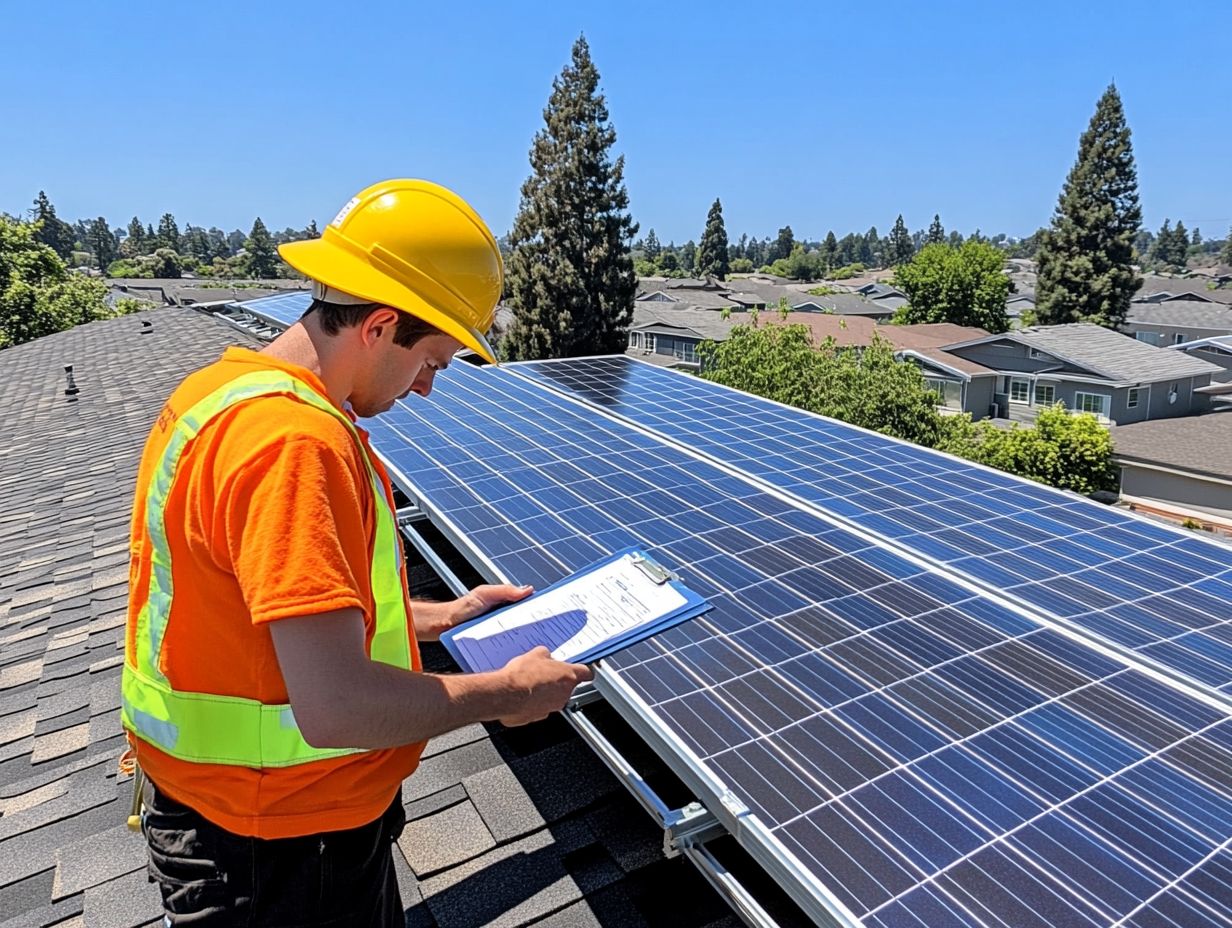
The installation of solar panels involves several important steps. The specific process can vary depending on the solar company and the type of system you choose.
Once you complete the planning phase, it s time to get started. This typically includes mounting the panels on your roof and connecting the wiring.
Installers will first assess your site to decide on the best mounting techniques. They may choose a fixed or adjustable system to maximize sun exposure.
Next, they will focus on the electrical connections, linking the panels to the inverter and your home s electrical grid. Safety is crucial throughout the process to comply with local codes.
After installation, schedule periodic inspections. This proactive approach will help identify potential issues early, ensuring your solar investment delivers peak efficiency and cost savings.
Maintaining and Monitoring Your Solar Panels
Proper maintenance and monitoring are vital for maximizing efficiency and ensuring a solid return on your investment. Regular checks help you catch small issues before they become major problems.
Use technology to monitor performance, giving you insights into energy production and consumption. This allows for timely interventions when necessary.
Tips for Proper Maintenance
To keep your solar panels in top shape, adopt effective cleaning and inspection practices. Clean your panels at least twice a year, especially in dusty areas.
Regular checks should include inspecting the wiring for wear, ensuring connections are secure, and looking for physical damage to the panels. Be mindful of shading from trees or buildings, as this can reduce energy output.
By following these guidelines, you can enhance your solar system’s efficiency and prolong its lifespan, ultimately protecting your investment.
Monitoring Your System’s Performance
Monitoring your solar system is essential for maintaining peak efficiency. Use tools like solar savings calculators and performance monitoring apps to track energy production.
This data helps you spot discrepancies or maintenance needs, allowing for effective optimization. With smart inverters and real-time monitoring, you can receive instant feedback on your solar performance.
Regularly analyzing this data helps you understand your system s health. This knowledge empowers you to make informed decisions about energy usage and storage.
Taking a proactive approach leads to better energy management, maximizing the benefits of solar energy and contributing to a sustainable lifestyle.
Frequently Asked Questions
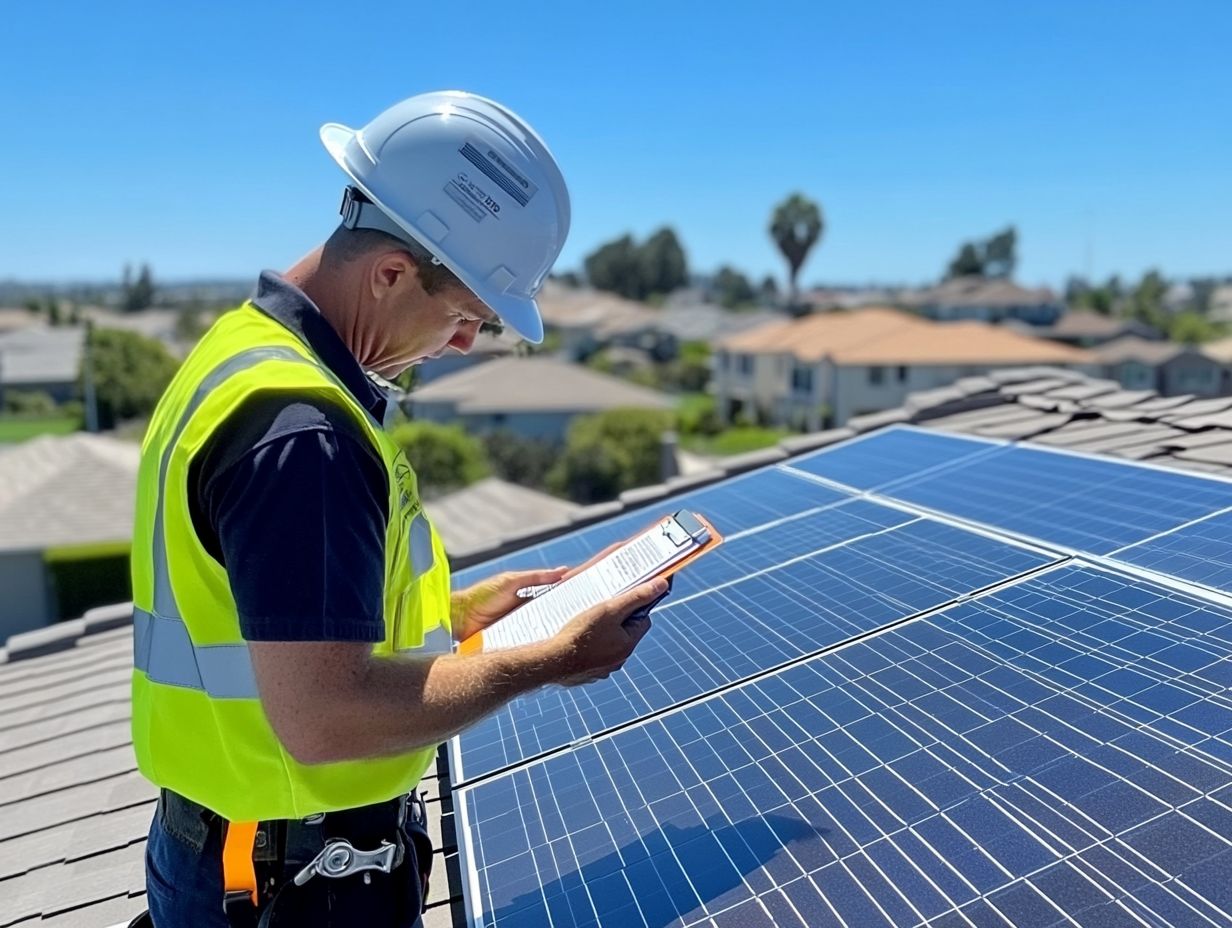
What are solar panels?
Solar panels are devices that convert sunlight into electricity. They use special cells that generate electricity from sunlight.
How do I start with solar panels?
First, research different types of solar panels and their benefits. Next, contact a reputable installer to explore your options.
What are the benefits of using solar panels?
Want to cut down your electricity bills? Solar panels can help! They also reduce your carbon footprint and can increase your property value.
How long do solar panels last?
On average, solar panels last about 25 to 30 years. Their lifespan can depend on quality, maintenance, and weather conditions.
Do I need special equipment to use solar panels?
You will need an inverter. This device converts the direct current (DC) electricity from the panels into alternating current (AC) electricity for your home.
Can I use solar panels if I live in a cloudy area?
Yes, solar panels work in cloudy areas! They may be slightly less efficient than in sunny regions, but they still produce energy.

